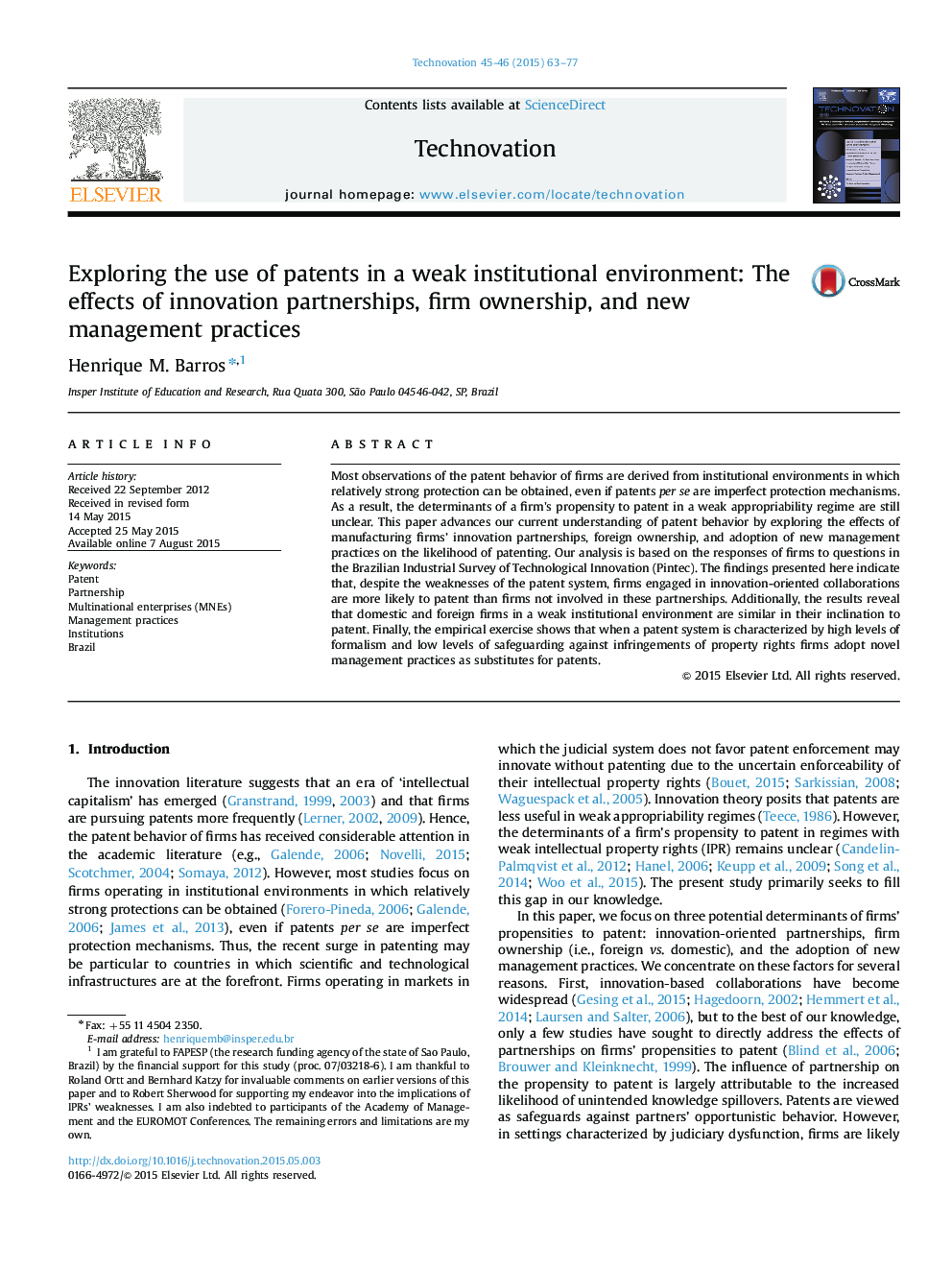| Article ID | Journal | Published Year | Pages | File Type |
|---|---|---|---|---|
| 1021833 | Technovation | 2015 | 15 Pages |
•I examine firms’ propensity to patent in a weak institutional environment.•Firms in this context adopt new management practices as substitutes for patents.•Firms that cooperate are more likely to patent even if the patent system is weak.•Foreign firms are no different from domestic ones in their likelihood of patenting.
Most observations of the patent behavior of firms are derived from institutional environments in which relatively strong protection can be obtained, even if patents per se are imperfect protection mechanisms. As a result, the determinants of a firm's propensity to patent in a weak appropriability regime are still unclear. This paper advances our current understanding of patent behavior by exploring the effects of manufacturing firms’ innovation partnerships, foreign ownership, and adoption of new management practices on the likelihood of patenting. Our analysis is based on the responses of firms to questions in the Brazilian Industrial Survey of Technological Innovation (Pintec). The findings presented here indicate that, despite the weaknesses of the patent system, firms engaged in innovation-oriented collaborations are more likely to patent than firms not involved in these partnerships. Additionally, the results reveal that domestic and foreign firms in a weak institutional environment are similar in their inclination to patent. Finally, the empirical exercise shows that when a patent system is characterized by high levels of formalism and low levels of safeguarding against infringements of property rights firms adopt novel management practices as substitutes for patents.
